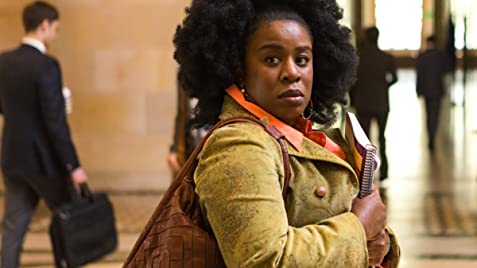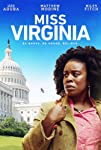Eye For Film >> Movies >> Miss Virginia (2019) Film Review
Miss Virginia
Reviewed by: Jennie Kermode

How far would you go to make sure that your kids got a decent education? In Washington, Virginia Walden Ford is something of a legend. Emerging from that first generation of African American kids who braved racist threats in order to attend the same schools as their white peers, she went on to fight for a scholarship programme that would enable bright kids from disadvantage communities to attend private schools. But Ford's crusade was a politically controversial one - taking the best students out of inner city schools arguably made it still harder for those schools to attract adequate funding and motivate their pupils - and nothing of this is reflected in RJ Daniel Hanna's massively simplified, hagiographic film.
There are elements here whose importance and veracity no-one is likely to dispute. The struggles of underfinanced schools are real enough, as is the fact that most of those who attend them are black, perpetuating cycles of poverty and lost opportunity. Ford is hardly the only mother in America working an extra job so that she can try to give her kid a better chance - or having that kid react to the situation with frustration or anger because at that age having a largely absent parent is hard and education doesn't seem very important. There are indeed organised criminals trying to take advantage of those who drop out. For these reasons, plenty of viewers will identify with Ford and root for her success.

The trouble is that the film takes issues out of context, distorts the wider context, simply ignores the coherent arguments for solving the problem in a different way and instead sets up straw men for its heroine and her supporters to demolish heroically. It monsters its bad guys, placing fictional characters who are just in it for the money into the shoes of real ones who had pretty good records on trying to help their communities, whether or not one agrees with their policy decisions. The result is a significantly distorted story which patronises Ford, who had a much more difficult case to make and did more of it herself; it presents her as somebody whose heroism was almost accidental.
What elevates the film, despite these problems, is Uzo Aduba's performance in the central role. She's very effective in capturing the combination of stubbornness and nerves in a first-time activist, and she imbues her take an Ford with the real passion and depth that are missing from the script. There's some good supporting work from younger cast members who seem to have been allowed more flexibility than the older ones and whose characters are more nuanced.
There are still relatively few films out there about African Americans fighting back against a biased system, so it's tempting to cheer this one on despite its shortcomings, and doubtless many people will find it inspiring. If this was the writer's aim, however, she would have been better to create a piece of pure fiction, or to choose a true story better suited to her aims - it's not as if there's a shortage of genuinely monstrous politicians out there. Miss Virginia is an awkward hybrid so intent on communicating a feelgood message that it muddies the issues until the real story is all but lost.
Reviewed on: 01 Oct 2020

















